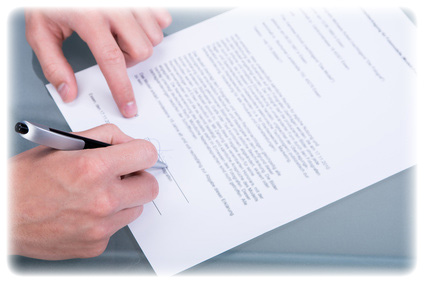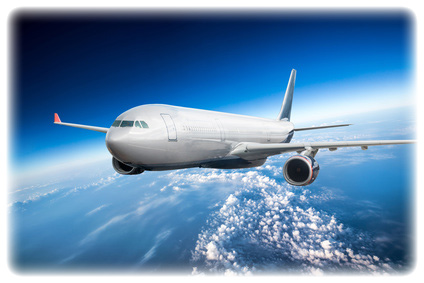"People are the same all over the world."
Translated from a Finnish magazine article published in October 2024.
Minna Nevalainen, 38, originally from Oulu, worked as a nurse for two years in Riyadh, the capital of Saudi Arabia. In Saudi Arabia, the appreciation for nurses is reflected in their paychecks, but you cannot call a surgeon directly.
Minna Nevalainen always thought about going abroad to work. "As a nurse, you can work anywhere in the world. It gives me the freedom I crave in my work."
"You have an Arabic name! I heard that almost every time I introduced myself while living in Saudi Arabia. Arabic names always mean something, and so does mine: Minna is a prayer sent to God - what a lovely meaning! In Finland, I'm just an ordinary Minna."
Minna lived in apartment next to the hospital, which had a swimming pool and tennis court in the yard, and a gym in the basement. During lunch breaks, Minna could bring refreshments to her colleagues who were spending their day off by the pool.
I spent just over two years in Riyadh, the capital of Saudi Arabia. I arrived in the city in the summer of 2021. In Finland, I work as an anesthesia and recovery nurse at Meilahti Hospital, and in Saudi Arabia, I worked as a recovery nurse. The work was quite similar in both places, as the same values are monitored for patients in the recovery room, regardless of the country. People are the same all over the world.
Fi allam? Do you have pain? The working language in the hospital was English, but I learned a few recovery room phrases in Arabic. There was an Arabic interpreter on the ward to help if the patient did not speak English. Communication went surprisingly well, even if there was no common language. Nurses were always treated warmly: in colloquial language, we were called sisters and brothers. In Saudi Arabia, the hospital world has been international for decades, and patients are already used to the fact that the nurse may not necessarily speak Arabic. In Finland, a patient might get annoyed if the nurse does not speak Finnish properly.
If you didn't want to stay for overtime, it was considered strange. The work pace was also tough in Saudi Arabia. The work was five days a week, and the workdays were nine hours long. If a nurse did not want to stay for overtime, it was considered strange - in Finland, you can usually choose whether to stay for overtime or not.
There were other differences too. I am used to calling the surgeon directly if a patient in the recovery room has a complication, and the surgeon comes to see the patient. In Saudi Arabia, the surgeon was like a superstar, and you couldn't call them directly. You had to start with two assistants and then go up the chain through doctors if there was no answer. However, I sometimes called the surgeon directly, as I was used to doing in Finland. I didn't think about whether they were at the top of the chain or not.
During my two years in Saudi Arabia, I traveled a lot. In the picture, Minna is at one of the most famous Saudi attractions, the Edge of the World cliff.
There were more male nurses in my hospital than in Finland. Sometimes a male nurse might ask a female colleague to check a female patient's surgical wounds if they were near the breasts, but otherwise, Muslim culture did not particularly show in the nursing work. The biggest difference from the Finnish hospital world was that every patient coming to the hospital had to have a sitter, a kind of support person, with them. Without this support person, I could not admit the patient to the ward. Sometimes the support person was missing - then the patient would call their acquaintances. A support person was always found.
The only walker During the first months in Saudi Arabia, the hardest part was being dependent on drivers. I love outdoor activities and cycling, but there was no outdoor culture in Riyadh. All movement happened by car with private drivers or taxis.
I was often the only person walking on the sidewalks next to the road. In Saudi Arabia, the weekend is spent on Friday and Saturday, and my weekend morning ritual was to walk the half-kilometer distance to my local store. On the short walk, about ten taxis would honk at me offering a ride. I never understood why there were traffic lights for pedestrians when no one walked anywhere.
I could walk around the city in jeans and a t-shirt. At first, I wore an abaya, a loose and long garment that covers the body. Soon I found out that there is no abaya requirement if you are not a Muslim. I could walk around the city in jeans and a t-shirt. My other preconceptions about Saudi culture also quickly crumbled. I thought I would only get to know other foreigners while in the country, and the locals would remain distant. It turned out differently, and one of my closest friends is a local. We still keep in touch
When Minna said she was from Finland, many mentioned Finnish education first. In the picture, Minna is wearing a souvenir from Saudi Arabia, a wool abaya.
The experience of my colleague who lived in the country seven years ago was different: back then, there was no music anywhere, and a man and a woman could not sit in a car together if they were not married. Nowadays, they can sit together even in cafes, and you can go on dates. I also went on a few dates. It is common for romances to develop between those who come to work from abroad - everyone comes to the country to work alone, so social life is lively. Many of my colleagues were in their fifties and sixties, and they had adult children in their home countries. Apparently, the Saudi time brought them back to their student years because there were so many parties and socializing.
My monthly salary started with a four. Many nurses who come to work in Saudi Arabia set a certain savings goal for themselves. When it is reached, they leave. Saving is easy because the hospital pays for housing, and the starting salary is better than in Finland. In Saudi Arabia, income is also not taxed. I went to Saudi Arabia through the Finnish agency Profco, and my monthly salary started with a four. This included overtime and on-call allowances. In addition to the salary, there is money from an annual bonus and a contract-specific bonus. The longer the employment contract you make, the bigger the bonus.
My biggest motivator for leaving was freedom. For me, the biggest motivator for leaving was not money or even adventure. It was freedom. As a nurse, you are always working in some organization, the work is hard, and you cannot influence it yourself. But you can work anywhere in the world, so it brings the freedom I crave. That's why it was clear to me that I would leave Finland. I will return to Saudi Arabia at the beginning of 2025, to the coastal city of Jeddah. I look forward to spending my days off diving in the Red Sea
Source https://www.is.fi/menaiset/tyo-ja-raha/art-2000010746828.html
Vacancies:
- SAUDI ARABIA Registered Nurse - Chemotherapy Suite
- SAUDI ARABIA Locum 90-day contract_Registered Nurse - Adult Infusion Center ( Chemo Suite)
- SAUDI ARABIA Locum 90-day contract Registered Nurse - Coronary Care Unit ( CCU)
- SAUDI ARABIA Locum 90-day contract Registered Nurse - Paediatric Hematology and Oncology (CWD)
- SAUDI ARABIA Locum 90-day contract_Registered Nurse - Cardiac Surgery ICU (CSICU)
- SAUDI ARABIA Start date May 2026- Locum 90-day contract Registered Nurse - Operating Rooms - Transplant (Liver, Pancreas etc)
- SAUDI ARABIA Registered Nurse - Endoscopy
- SAUDI ARABIA Locum 90-day contract Registered Nurse- Emergency
- SAUDI ARABIA Registered Nurse - Adult Emergency
- SAUDI ARABIA Locum 90-day contract_Registered Nurse - Otolaryngology, Head & Neck and Nephrology (B2 ORL)
- SAUDI ARABIA Locum 90-day contract_Registered Nurse - Adult General Surgery
- SAUDI ARABIA Locum 90-day contract Registered Nurse - Dialysis
- SAUDI ARABIA Registered Nurse - Hemodialysis Unit
- SAUDI ARABIA Registered Nurse - Medical Pediatrics
- SAUDI ARABIA Locum 90-day contract Registered Nurse - Medical Pediatrics
- SAUDI ARABIA Registered Nurse - 90 day or 180 day contract- Paediatric Surgery for May start date
- SAUDI ARABIA Locum 90-day contract_Registered Nurse - Paediatric Intensive Care Unit
- SAUDI ARABIA Locum 90-day contract Registered Nurse - EMS - Paediatric Emergency
- SAUDI ARABIA Locum Registered Nurse - Orthopaedics/plastics
- SAUDI ARABIA Locum 90-day contract Registered Nurse - Liver ICU/ HDU
- SAUDI ARABIA Short-Term Nursing Contracts (90-180 Days) Paediatric ICU
- SAUDI ARABIA Registered Nurse - Paediatric Cardiac Intensive Care Unit
- SAUDI ARABIA Locum 90-day contract Registered Nurse - Paediatric Stem Cell Transplant
- SAUDI ARABIA Registered Nurse - Paeds Haematology and Oncology
- SAUDI ARABIA 90 or 180-day contract Cardiac Surgery Adult or Paediatric
- SAUDI ARABIA Registered Nurse - Solid Organ Transplant_Liver Transplantation, Small Bowel Transplantation and Hepatobiliary
- SAUDI ARABIA Locum 90 or 180 day contract_Registered Nurse - Pediatric Surgical / Solid Organ Transplant unit
- SAUDI ARABIA Registered Nurse - Theatre/Operating Room Cardiac
- SAUDI ARABIA Locum 90- 180 day contract_Registered Nurse - Theatre/Operating Room Cardiac
- SAUDI ARABIA Registered Nurse - Orthopedics/Plastic Surgery
- SAUDI ARABIA Registered Nurse - Paediatric Surgery
- SAUDI ARABIA Registered Nurse - Transplant - Liver ICU
- SAUDI ARABIA Registered Nurse - Liver ICU/ HDU
- SAUDI ARABIA Registered Nurse - ITU- Critical Care
- SAUDI ARABIA Registered Nurse - Medical Oncology Unit
- SAUDI ARABIA Registered Nurse - Transplant OR
- SAUDI ARABIA Registered Nurse - Medical Intensive Care Unit (MICUC)
- SAUDI ARABIA Registered Nurse - VIP Medical/Surgical
- SAUDI ARABIA Registered Nurse - Labour & Delivery Unit
- SAUDI ARABIA Registered Nurses - Liver, Intestinal/Small Bowel Transplant
- SAUDI ARABIA Locum 90-day contract_Registered Nurse - Cardiovascular Stepdown Unit (CVSDU)
- SAUDI ARABIA Locum 90-day contract_Registered Nurse - Radiology /Recovery/ CT/Angio
- SAUDI ARABIA Registered Nurse - Radiology /Recovery/ CT/Angio
- SAUDI ARABIA Locum 90-day contract Registered Nurse - Surgical Oncology Unit
- SAUDI ARABIA Registered Nurse- 90-day contract- Operating Room Transplant experience
- SAUDI ARABIA Registered Nurse- Operating Room Transplant
- SAUDI ARABIA Locum 90-day contract_Registered Nurse -Adult Bone Marrow Transplant Unit
- SAUDI ARABIA Registered Nurse - Paediatric Emergency
- SAUDI ARABIA Locum 90-day contract Registered Nurse - Adult and Paediatric Cardiovascular and Cardiology
- SAUDI ARABIA Locum Registered Nurse - Cardiac Cath Lab










